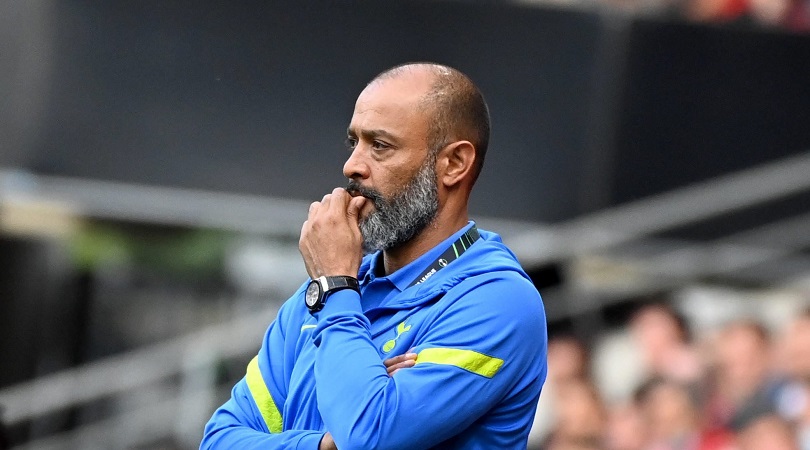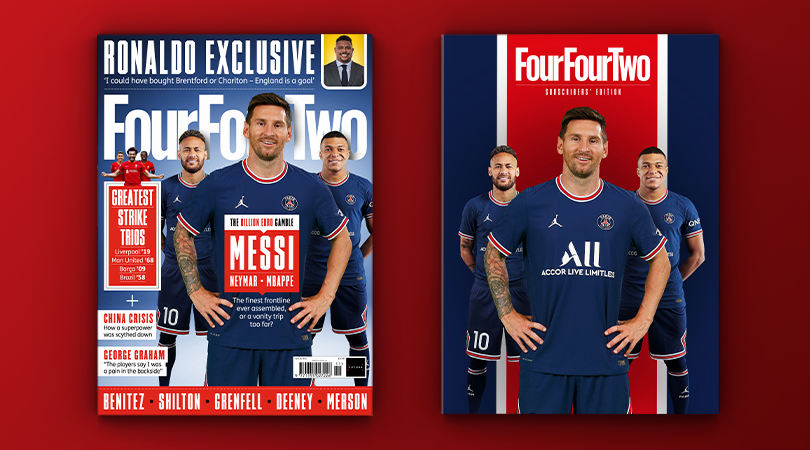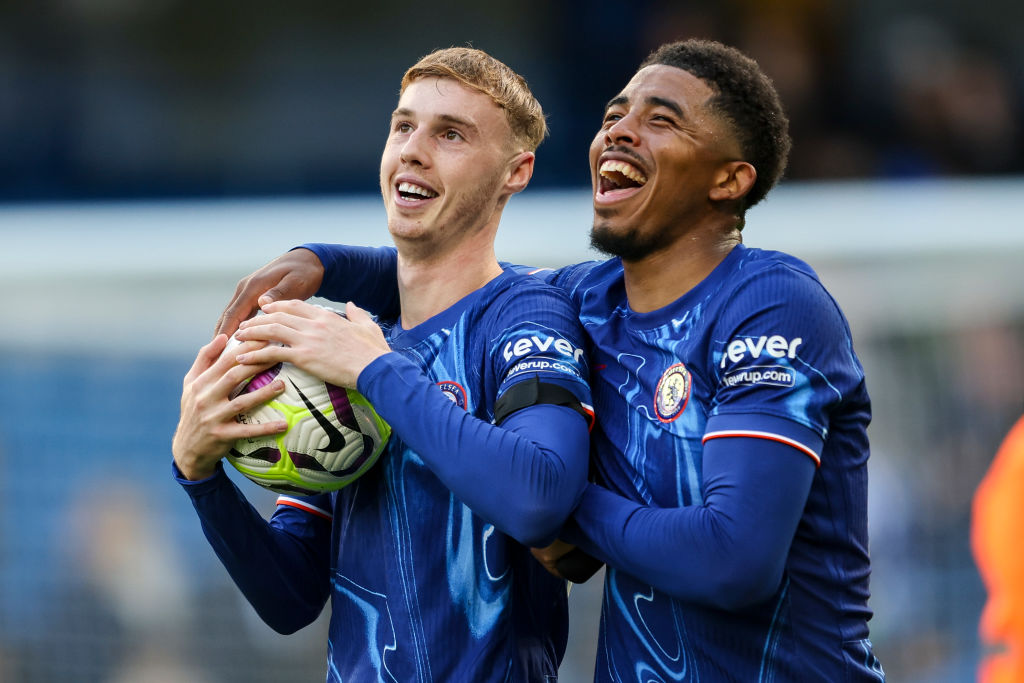Why Nuno at Spurs was a disaster before he was even appointed
Nuno Espirito was sacked on Monday following a a miserable four months in charge of the north London club

Some managers are doomed to fail when they start. There is a smaller, more exclusive club of those who were doomed even before they took the job. Their number may include David Moyes at Manchester United – who could ever actually replace Sir Alex Ferguson? – and Ronald Koeman at Barcelona, taking over a club drowning in debt during an era of Covid.
Perhaps it was apparent that Nuno Espirito Santo was not destined to succeed at Tottenham some 42 days before an appointment that always seemed more a case of desperation than inspiration. Eager to make amends for signing up for the Super League and the decision, when blinded by stardust, to plump for Jose Mourinho, Daniel Levy had vowed to choose a manager who played “free-flowing, attacking and entertaining” football.
TACTICS How would Tottenham play under Antonio Conte?
But instead of getting the anti-Mourinho, he recruited the second Mourinho, another Portuguese who is essentially pragmatic and cautious, but with less charisma and, it transpired, fewer goals. Hindsight is not required to pronounce Nuno a poor fit for Spurs; virtually everyone did at the time. Nuno’s Wolves averaged less than a goal a game last season, albeit in a year when they lost Raul Jimenez. His gameplan was based on keeping men behind the ball. His teams start games as if the aim is to sedate the crowd, not excite them: when Spurs sacked him on Monday, he had been in charge of his two English clubs for 124 league games. They failed to score in the first half of 87 of them.

Nuno’s advocates have argued he played attacking football with Valencia and Porto. Yet evidence of that supposed flexibility has been hard to find in the Premier League. He flourished at Wolves as a cautious counter-attacker, building on platform featuring three centre-backs and at least two holding midfielders. His Wolves and Spurs sides have never convinced as attacking outfits with a back four.
An attempt to be ambitious against Arsenal brought a ludicrously disjointed midfield. It felt more natural for Nuno to field a trio of defensive midfielders away at Crystal Palace. Both brought wretched displays and chastening defeats. Indeed, for a manager who started without much credibility with the fanbase to lose all of his London derbies was both damning and indicative of a lack of spirit.
Perhaps the sight of a wantaway Harry Kane toiling unhappily in attack could sum up Nuno’s reign. Mourinho at least ensured Kane and Heung-Min Son reached new levels of potency as a double act. During Nuno’s time in charge, Kane scored half as many Premier League goals as Trevoh Chalobah.
Get FourFourTwo Newsletter
The best features, fun and footballing quizzes, straight to your inbox every week.
His goal drought was cause and effect as Tottenham were dismal. There were at least six appalling performances: Pacos de Ferreira away, Palace, Arsenal, Vitesse Arnhem, West Ham and Manchester United. In each, they lacked incision, invention, ideas and intent. There were perhaps two genuinely good displays, one against a hapless Newcastle and while Nuno’s tally of five league wins is only one behind Pep Guardiola, it was a flattering total. His opening triumph against Manchester City a glorious false dawn and the only occasion when his narrow 4-3-3 really worked. It was essentially a defensive shape and Nuno is essentially a defensive manager. Tottenham surely knew it: it was a reason why they did not want to appoint him in the summer and why they were so swift to dismiss him.
Spurs’ three most popular managers this century have all had more attacking approaches, in Martin Jol, Harry Redknapp and Mauricio Pochettino. Those who are overly negative, such as George Graham and Jacques Santini, seem to be fighting losing battles. In Nuno’s case, it was rendered harder by the perception he was a dullard off the pitch and as well. In an unusually blunt reaction to a pre-match interview on a channel where he was a pundit, Glenn Hoddle described Nuno’s words before the Vitesse defeat as “bland.” He was accurate.
As Saturday’s reception showed, supporters never took to him, either. Nuno looked shaken; the endless, meaningless talk of “solutions” was abandoned after the final whistle as he admitted his Spurs were not on the right track. He was the wrong man in the wrong place, but also at the wrong time: had he arrived a year earlier, fresh from twin seventh-place finishes with Wolves, his stock would have been higher. Instead, he joined when Kane wanted to go and when it was glaringly apparent that Tottenham had approached a host of others.
Some managers are first choice. Nuno, with his two-year contract, was the last choice, the one who ticked few of Tottenham’s boxes, who came when their chairman had outlined six weeks earlier why he didn’t want a manager like him. If Daniel Levy had listened to Daniel Levy, he would never have hired Nuno. When he soon did, he fired him.
Subscribe to FourFourTwo today and get three issues delivered for just £3.
Restock your kit bag with the best deals for footballers on Amazon right now
ALSO READ
LIST Football Manager 2022: All the FM22 wonderkids you'll need to sign
Richard Jolly also writes for the National, the Guardian, the Observer, the Straits Times, the Independent, Sporting Life, Football 365 and the Blizzard. He has written for the FourFourTwo website since 2018 and for the magazine in the 1990s and the 2020s, but not in between. He has covered 1500+ games and remembers a disturbing number of the 0-0 draws.

